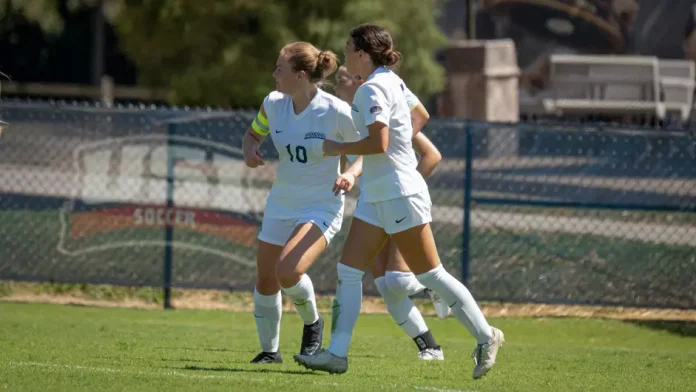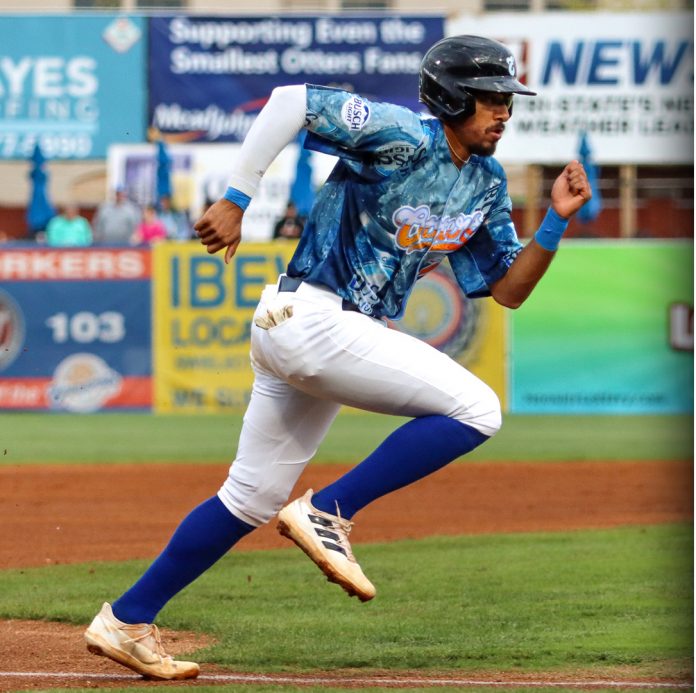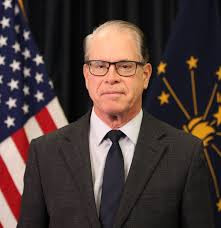Indiana Supreme Court Justices question defendants in a case between the Indiana Attorney General’s Office and the owners of TikTok. (Screenshot from oral arguments)
Indiana’s highest court weighed allegations of TikTok’s alleged deceptive practices in the Hoosier State on Tuesday, skeptical of arguments from both sides about jurisdictional issues.
The two suits, heard together, were filed by Attorney General Todd Rokita against the popular, short-form video app in December 2022 in Fort Wayne. He accused TikTok and its parent company, ByteDance, of violating Indiana’s Deceptive Consumer Sales Act with its age rating for those 12 and older — claiming that it contained more sexual content, profanity and drug references than advertised.
The above made TikTok unsafe for children, he continued. Additionally, he claimed in a separate lawsuit that the company failed to protect user data from the Chinese Communist Party.
Justices noted ongoing national security concerns about the app, including a rare bipartisanlaw requiring ByteDance to sell the app to an American company. President Donald Trump, who embraced the app in his second campaign, has intervened and delayed that law’s implementation three times.
“Congress doesn’t agree on much, but they agreed on this. And the (U.S.) Supreme Court said it’s okay to (ban) in this context,” said Justice Christoper Goff. “But now, we’re on pause … this seems to be a completely unique circumstance. And I cannot, for the life of me, imagine, with all of that going on, why it would be appropriate for us, or reasonable for us, to cite the precedent to exercise jurisdiction here and write a rule for all time.”
Conservative and liberal lawmakers both cite worries about TikTok’s parent company, Beijing-based ByteDance, and its ties to the Chinese Communist Party. Some have openly wondered if the app feeds user data to Chinese authorities, including Rokita.
“Our lawsuit against TikTok was filed to protect our children and to protect our data privacy that we allege is being stolen by the Chinese Communist Party. We maintain their business model intentionally deceives children and adults to drive up profits by saying it is appropriate for kids and that your personal data is safe. Neither is true,” the office said in a statement in 2023.
The lower courts dismissed Rokita’s suits and the agency appealed the case to the Indiana Supreme Court. State attorneys on Tuesday countered that the “federal law over the divestiture of ownership of TikTok has nothing to do with this case,” maintaining that the issue at hand was “deceptive and misleading representations made to consumers.”
Arguments before the court
Attorney Brian Paul, representing TikTok and ByteDance, argued that the Indiana Supreme Court wasn’t the appropriate venue for the case, which is the first issue before the justices.
“Indiana is seeking to punish TikTok for statements that were not made in Indiana, that are not about Indiana, that were not targeted at Indiana and were not tailored to Indiana,” Paul said in his opening remarks.
The state previously argued that justices could intervene because Hoosiers enter into user contracts with TikTok when they download the app.
Paul said because TikTok has no physical presence in the state, not even a server, Indiana wasn’t appropriate for the lawsuit — though the company makes $46 million off of Hoosier data annually by using collected data to tailor advertiser content, plaintiffs said.
Justices seemed to doubt that reasoning, pointing to other products, like magazines shipped across state boundaries, and legal precedent.
“TikTok seeks to escape the rules that apply to everyone else, from print magazines to burger franchises,” said Solicitor General James Barta, arguing on behalf of the state.
Barta said that these “daily exchange(s) of data” are used by the plaintiffs to craft “addictive content” based on user locations to earn millions.
“And yet, TikTok says Indiana courts can do nothing to hold it accountable for misleading and deceptive statements that induced Indiana parents to download this app for themselves or for their children, and that ultimately end up harming children and other users,” Barta concluded.
Chief Justice Loretta Rush wondered if such a broad application of Indiana law might capture other apps and social media companies anytime a Hoosiers accepts a website’s cookies or agrees to a user contract.
“Every one of those is going to be subject to (our jurisdiction) no matter where they’re located or the product?” Rush asked. “… are we going to now have personal jurisdiction of any company that grabs and sells data in Indiana, no matter how small?”
That concern appeared to resonate with some of Rush’s fellow justices.
“The implications for things like free speech, for interstate commerce seemed, to me, to be just breathtaking,” said Goff.
In response, Barta said the core of the case was about deception and misleading consumers and that the state “has a significant interest in protecting its consumers, in having its courts interpret its laws.”
Justice Derek Molter noted, however, that it was “unusual” to claim a violation of Indiana’s Deceptive Consumer Sales Act without the exchange of money.
“… it is core to TikTok’s business model to be able to monetize users’ time and attention and this is, of course, not the only company that does this,” Barta said. “… it would be awfully odd to say that the legislature has been completely unaware of this, and yet has decided to do nothing about it with the Deceptive Consumer Sales Act.”
He said the law doesn’t cover “free” transactions, but does apply to an exchange of goods and services. He contends that Tiktok users exchange their data for entertainment. The state is seeking civil penalties and a jury trial as allowed under that law.
Justices, led by Rush, indicated they would issue their ruling “in due course.”












